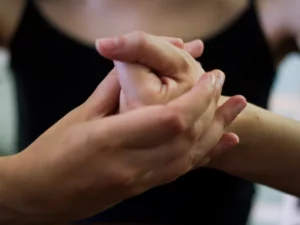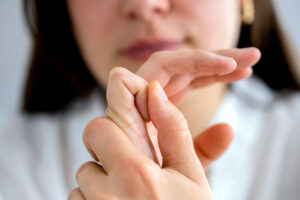Given the busy life one leads, cracking your knuckles brings much relief. Some explain this as helping them release excessive work tension. But, for others, this is an annoying habit that they often dislike in most people. Nonetheless, the debate continues, with people finding the habit weirdly relieving and disturbing. Some are so concerned with the result that they even question, “Does cracking your knuckles cause arthritis?”
People have different opinions, and a doctor experimented with himself, where he went on cracking knuckles for over 50 years. He, specifically, cracked the knuckles of his left hand around 2+ times a day but never of the right hand. At the end of the experiment, there was no difference between the knuckles of the left hand and the right hand. Neither the fingers of the left hand were prone to arthritis.
What Does Cracking Your Knuckles Do?
Moving on with the question, “What does cracking your knuckles do?”
The pop sound you enjoy by cracking your knuckles is an after-effect of the bubbles bursting in your synovial fluid – the same fluid is responsible for lubricating your joints. On occasions when you add pressure or pull the bones apart, i.e., try to crack knuckles, these bubbles burst and cause a popping sound.

Specific experiments have already provided adequate answers to the question, “Can cracking knuckles cause arthritis?” And it is a big no! But still, there lie certain problematic results that people cracking knuckles mostly have to deal with compared to the ones with no such habits. Here is how
- Cracking your knuckles frequently or incorrectly can cause ligament injury or dislocation of a finger.
- Such a habit can also cause wearing off the cartilage in your joints, causing inflammation and pain that is hard to withstand.
Also, a study comparing habitual knuckle crackers and those unrelated to knuckle cracking showed that the former (regular knuckle crackers) were more prone to low grip strengths and hand swelling.
Interesting Facts On Cracking Knuckles
On asking people why do they crack their knuckles? There have been multiple statements!
- According to them, it is a stress relief
- They do it when nervous or severely tense.
- Or simply enjoy the sound.

Moving on, here are some of the facts collaborated on cracking knuckles
- A cracked knuckle will not crack for the second time within the next 20 minutes of the first successful attempt. Because it takes time for the gas bubbles to accumulate in the same place.
- Also, in some people, knuckle cracking or noise in the joints is made by the tendons connecting the muscles with the bones. In this case, some bones stick out a bit more than others, and a movement of tendons causes the snapping sound. For example, your knees crack when squatting or standing up after being seated for a long time.
- Cracking your back and neck can be unsafe because your spinal cord is a sensitive column, forming an integral part of your central nervous system. Nerves branch off from the spinal cord, monitoring everything you do. A sudden jerk in them might cause long-term repercussions.
How To Stop Knuckle Cracking?
Now that you know what the odds are with knuckle cracking and want to get rid of the habit. Here is a list that might help you with the right solution.

- Cracking your knuckles is a behavior; if you want to bring in a change, it is important to learn more about the core triggers of such behaviors.
- To eliminate such a habit, work on a goal-setting technique and reward yourself each time you resist cracking the knuckles.
- If knuckle cracking is something you enjoy indulging in during your free time, then it is best to get rid of the habit by keeping your hands busy. Keep a stress relief ball handy or a pencil and a sketch pad nearby.
- Also, rather than cracking your knuckles when free, you can utilize that time to take care of your hands. Keep a hand cream on your work desk or study table. Apply it on your hands when sitting free.
- If you have log nails, you can utilize your free time to take care of the overgrowing cuticles or file off the extra nails.
- Stress also has a significant role in making people crack their knuckles. Suppose you are trying to step into an ongoing journey of breaking free from this habit. It’s time to understand the deeper issue and identify the core of the problem.
So that is all getting deeper into the process of knuckle cracking. Any habit, once acquired, takes time to let go. Give yourself that time, and be patient. One way or the other, you can make a change.



